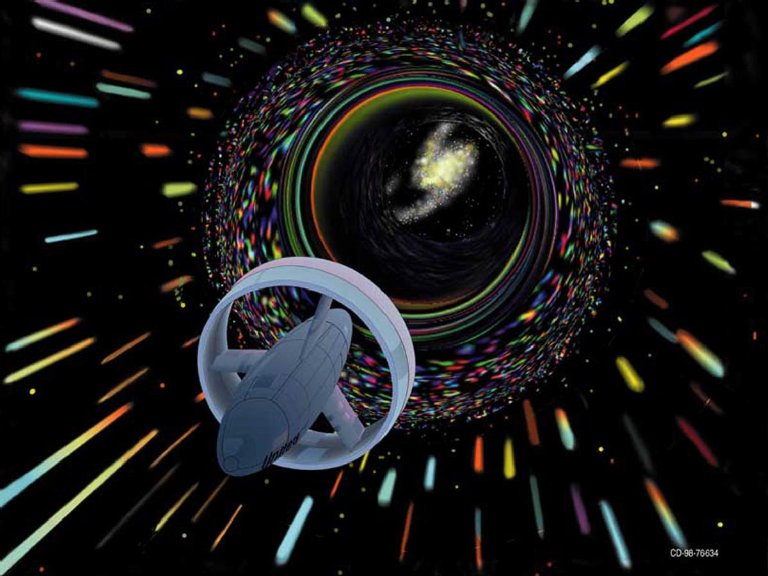A Glitch in Time
 Professor Stephen Hawking once posed an interesting question. If time travel is possible, then why don’t we see tourists from the future? He had two possible answers. The first being that time travel isn’t possible, and the other that perhaps humans no longer exist to travel through time. I think there’s another answer. It may not be as simple, but it is a simple answer nonetheless. I don’t think anybody wants to go back in time.
Professor Stephen Hawking once posed an interesting question. If time travel is possible, then why don’t we see tourists from the future? He had two possible answers. The first being that time travel isn’t possible, and the other that perhaps humans no longer exist to travel through time. I think there’s another answer. It may not be as simple, but it is a simple answer nonetheless. I don’t think anybody wants to go back in time.
Okay, I can hear all the complaining right now. Yes, I know there are plenty of explanations beyond Hawking’s assumptions. There’s the idea that going back in time and changing something will negate the need to go back in time, and the timeline automatically repairs itself. There’s the argument that everything is set and anything someone goes into the past to do will only reinforce the events of the past. There’s also the claim that any paradox in the past travels at the same “speed” as the present point, and therefore will never affect it. Not to mention the concept that tourists are already among us but can hide themselves well. And then there’s also the notion that time travelers are constantly stealing our stuff, and that’s why things always seem to disappear … like socks. But there’s actually an even better explanation.
Now I hate to burst the bubble of all you nerd boys who dream of hooking up with an Eloi chick, but consider Doc Brown’s DeLorean with its Flux Capacitor, mini nuclear reactor, and dog hair on the upholstery. Go 88 miles per hour, and in a flash of lightning and flaming tire tracks, you’re in a different time … on the same point on Earth that you started from. This doesn’t work. You see, Earth spins on its axis. It also revolves around the Sun. The Sun revolves around the center of the Milky Way galaxy. The galaxy is accelerating in an ever-expanding universe. Where you are right now is less than a minute from the cold vacuum of space. Your skin would ice over, your breath would leave you in a quick bang, and your blood would go into a cold boil. Your death would be a quick one. But it just won’t feel that way.
A single-point time portal is an even worse idea. Earth’s gravity holds in place a vast quantity of a fluid substance we like to call “air”. We need air. What we don’t need is an open drain plug. Close the portal before you open the airlock. The entire world will thank you for it. (Please tell me you’re using an airlock.)

Let’s say you want to hit a certain point in time and space. So in a volume of at least millions of cubic kilometers, you’re literally trying to hit the head of a pin, blindly, using what could very well be incomplete data. Is this really that good of an idea? Let’s say that, in order to get your calculations right, you employ some people as guinea pi— er, “test subjects”. The idea is that those who end up somewhere survivable could send word (through “snail” time of course) where you should go. But frankly, if any of them should happen to end up somewhere even remotely habitable, forget about them sending a message. They’re probably glad to be away from you at that point!

And what is this for? So you can watch the coronation of Louis XIV? Really??? The entire reason for studying the past is to learn its lessons so we can move on with greater knowledge and wisdom. Since history keeps repeating itself, we have plenty of reference material without having to go back and experience it firsthand.
But what about time tourists? As a filmmaker, I can tell you that, as far as entertainment goes, people don’t want realism. They want believability. There’s a difference. There are things that occur in real life that an audience would never buy into if they were sold as fiction. But people are willing to suspend reality to believe in complete impossibilities starting with the opening titles and ending with the closing credits. Tourists are looking for enjoyment, not to write a research paper. Let’s put this into perspective. On one hand, you could risk your life traveling through time and end up in a time and place where the food is terrible, the air is pungent, the people don’t bathe, everyone is intolerant and violent, and they would slaughter you as a witch if they found out that you’re a time traveler in the hopes of having fun. On the other hand, you can attend a RenFest. Get the point? Now consider that, in the future, they probably have wicked cool holographic virtual reality.
So my conclusion is twofold. First, in response to the perspective put forth by Stephen Hawking, the issue isn’t whether or not time travel is possible or whether or not humans still exist to do it. The issue is that doing so is completely and utterly pointless. Secondly, if someone should happen to time travel, the technology would need to find points in space as well as time. That’s right. H.G. Wells bears substantially less scientific credibility than Bill & Ted. Think about that, but try not to let your head explode.
[Main image: The Helix Nebula, courtesy NASA Spitzer Space Telescope Collection]
![]()




Reblogged this on Daniel C. Handley.